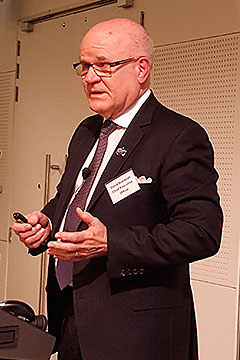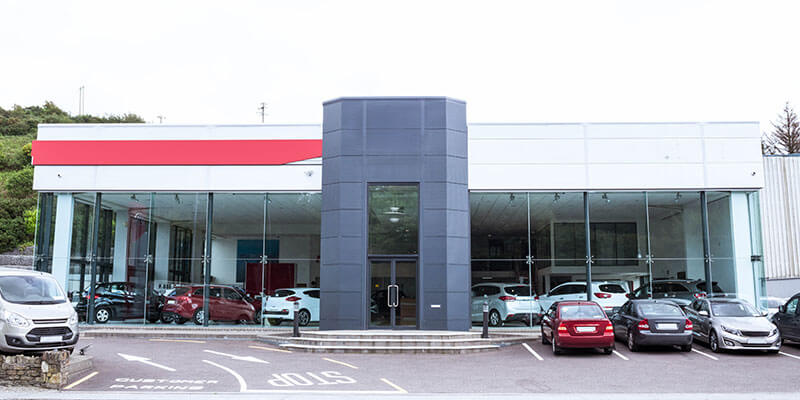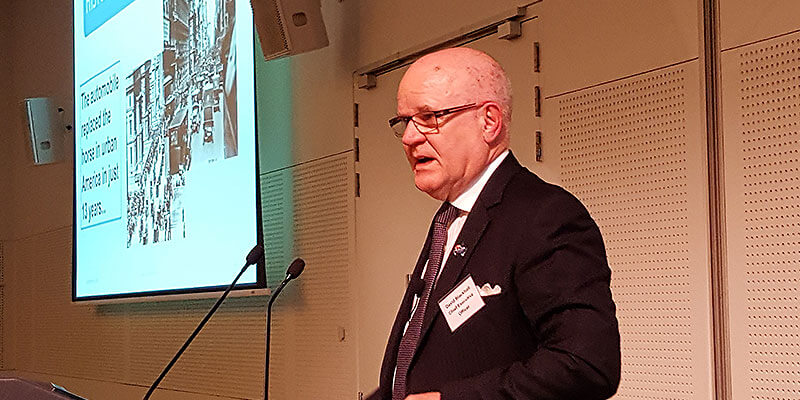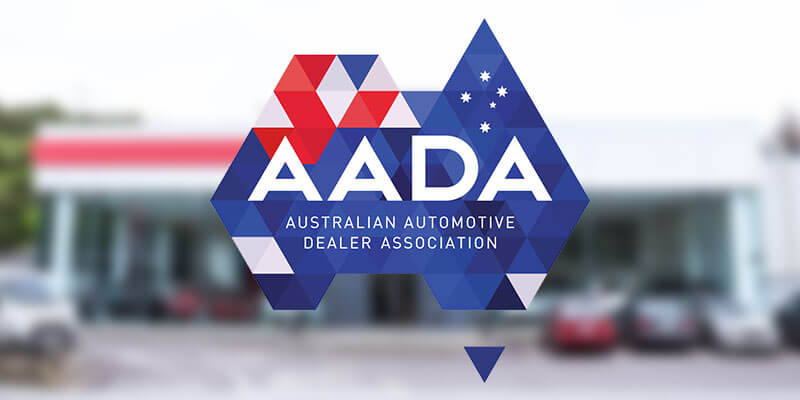
Changing times: AADA CEO David Blackhall told the convention that the dealership model was under threat in Australia.
AUSTRALIAN Automotive Dealer Association (AADA) chief executive officer David Blackhall stretched the musical memory of many car dealers in the room when he enlisted the aid of Bob Dylan to drive his home his message that car retailing was entering a period of massive change.
Addressing the opening session of the AADA Convention in Melbourne, Mr Blackhall strode to the rostrum amid the strains of Dylan’s seminal anthem, The Times They Are A Changin’.
And his message was no less serious. Dealers are facing a threat that could turn the industry on its head and allow dealers to be undercut by invaders who have no history in car retailing.
He said the current industry had been shaped by globalisation and commoditisation in past decades but warned that the current threat of clean disruption threatened to upend the century-old system of vehicle retailing that prevails today.

Mr Blackhall said clean disruption was a term coined by economist Tony Seba, who has studied the effects of information technology (IT) on long-standing business models and its ability to smash them apart.
Mr Seba argues the convergence of three technologies, alternative energy sources, electric vehicles and autonomous vehicles has the power to undermine the current retailing system by 2030.
“Could some beautiful High Street showrooms … become stranded assets under Tony Seba’s timeline?” Mr Blackhall asked.
“Expensive High Street facilities could become marginalised by a different approach to the question of how you sell cars.
“So, what can we do about this? If Tony Seba is right and 2030 means a fully disrupted industry where we are selling electric vehicles which require next to no service – two electric motors and a battery pack – are we going to need the sort of investments we see today?
“We have to think about what we are being asked to do, what we are being asked to invest in. Whether those investments make long-term sense, what their useful lives are, what their alternative uses are.”
Mr Blackhall said dealers could do little about the impending change in vehicles and how they are sold, except to retain a lot of flexibility in their business plans in an environment where change is rapid and uncertain.
Another factor looming over dealers was the issue of regulation, and here he was more optimistic about dealers and their ability to influence the politicians making the regulations.
Mr Blackhall once again drew on his early musical experiences when he introduced this part of his address by playing some lines from Tom Petty’s famous song We Won’t Back Down.
“Regulation is here to stay. All around the world regulators are rightly interested in our business because it’s such a prominent part of what goes in on in commerce around the world.”
He cited the review of commissions by the Australian Securities and Investment Commission (ASIC), the review of the agreement on access to repair information, the Australian Competition and Consumer Commission (ACCC ) with a very wide ranging investigation and the Australian Consumer Law review.
“There is so much happening in this space and we’ve got to keep those five vital issues top of mind.”
Mr Blackhall said dealers needed to partner with other bodies if they were to have maximum impact in influencing regulations as they are prepared.
“Advocacy has many voices,” he said, referring to the many automotive-focused groups negotiating with government.
He said that, while the AADA was the only group representing dealers at all levels of government, it had to be recognised that the AADA was only formed less than three years ago and was still relatively new in this area.

David Blackhall
“We’re new, we’re under-resourced, but we are on the journey.
“We are the only ones that articulate the franchised car dealers’ issues and those issues alone.”
He said that, while the AADA was alone, the best policy outcomes would be achieved if the AADA can broker industry-wide views.
“Work with the FCAI (Federal Chamber of Automotive Industries), work with the AAA (Australian Automobile Association) where possible, work with the MTAs (Motor Trades Associations) where possible.
“We won’t always agree with them, but we will agree more often than we disagree and we will probably agree more than we think we will.
“But the only way to get there is to leverage the combined resources of the industry advocates that exist today.”
He said that, apart from the AADA itself, dealers should also work on those partnerships.
“It’s vitally important because it’s the only way we will get the traction and the leverage we need.”
He said a good example was the proposal to allow parallel imports of new cars because some politicians believe that would deliver cheaper cars to Australian consumers.
“We have been able to demonstrate, through three studies, that is just not true.”
“The UK Auto Express has done a study, the FCAI last year did a study and GoAuto has also independently researched this issue of what the cost of cars is in Australia.
“They show that our market is a leader in affordability. The Auto Express study shows us to be number three in the world for cheap cars, behind India and Russia.
“You have got to ask yourself why politicians are so hell-fire bent on opening the doors to personal private imports.
“Well it’s because of well-financed groups that don’t have out interests at heart, and that’s where advocacy comes in.”
Cue the strains of Tom Petty: “Well, we won’t back down, we’ll stand our ground.”
By Ian Porter













 Read More: Related articles
Read More: Related articles

